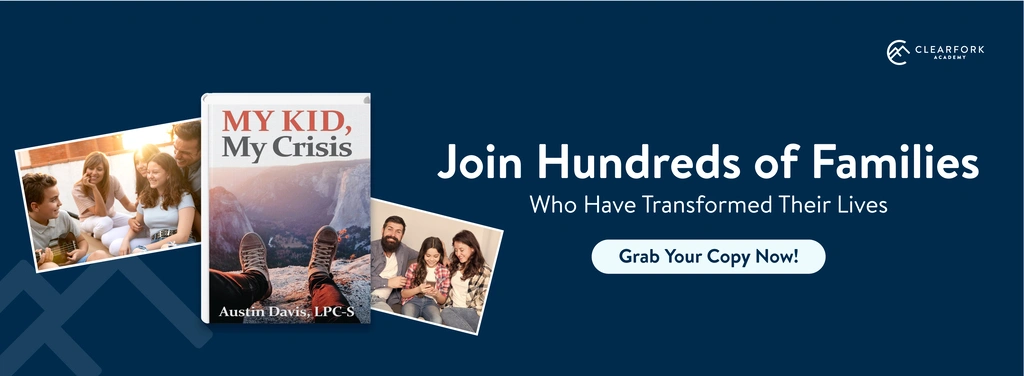Table of Contents
Teens today are sometimes called the “loneliest generation” despite being more socially connected online than any other age group. The American Psychological Association reports that one in three youth report feeling lonely.
Loneliness was defined as “feeling like you do not have meaningful or close relationships or a sense of belonging.” The rise in mental health problems among teens is partially due to these feelings of loneliness and isolation.
During adolescence, staying connected is vital as young people develop their sense of self and place in the world. In 2023, the US Surgeon General even called loneliness a “public health epidemic.”
Read on to understand why teens are lonelier than ever, the long-term effects on their mental health, and strategies to help them foster connection and belonging.
What Causes Teens to Feel Lonely?
Loneliness is when one’s social needs are not met. Teens may desire more social relationships, interactions, or a feeling of belonging. Isolation and loneliness can heighten the risk of mental health problems and increase the risk of suicide by 16 times.
Various factors increase feelings of loneliness in teens. Some may be more susceptible, such as those who struggle with self-esteem issues or insecure attachments that make it hard to form connections. Others may live in rural towns with little space to hang out and meet people their age. In northern parts of the US, feelings of loneliness are heightened during winter, when it is too cold to leave the home.
Other reasons teens may feel lonely include:
- Lack of social or communication skills
- Living in a rural area
- Do not have the time for socializing or building meaningful relationships
- Insecure attachment
- Social anxiety
- Depression
- Social media
- Long-term isolation after the COVID pandemic
- Medical conditions that make it challenging to leave the home
Does Social Media Create Isolation?
Over half of the population in the US have at least one social media account, and half report using it daily. Teens in particular, spend up to 4-5 hours a day on social media. While American youth seem more socially connected than ever, many report chronic feelings of loneliness and struggle with depression.
On one hand, social media can connect isolated individuals with friends they are not physically close to. They can also connect with others online who share similar interests, passions, experiences, or even specific mental health or medical conditions.
On the other hand, constant social media use has become a substitute for face-to-face interactions. This can make teens feel disconnected from the real world and isolate them from their local communities.
Social media can also lower self-esteem by portraying only the positive side of a user’s life online. This can distort reality in young people, causing them to set unrealistic expectations for themselves and increase the risk of anxiety or depression.
Can Loneliness Cause Depression?
The research is pretty clear; numerous studies have shown the association between loneliness and depression. Humans are naturally social creatures. It is in our biological nature to crave community, relationships, and belonging.
In many ways, it serves as a protection and increases our quality of life. While most people associate isolation with depression, studies show that chronic loneliness is also linked to:
- Anxiety
- Substance abuse
- Personality disorders
- Mood disorders
- Sleep problems
- Alzheimer’s disease
- Chronic physical health problems
How to Recognize Depression in Teens
It’s important to stay aware and recognize if your teen is struggling with feelings of loneliness and depression. It’s normal for teens to want to spend time alone, especially during moments of stress.
However, too much isolation paired with other symptoms can be a telltale sign someone is struggling with depression. Some of the warning signs of depression in teens include:
- Sadness or hopelessness
- Lack of motivation
- No sense of purpose or belonging
- Changes in sleep/appetite
- Loss of interest or pleasure in everyday activities
- Lack of self-care or basic hygiene
- Fatigue or low-energy
- Irritability, angry outbursts
Supporting Teen Mental Health
It’s essential for parents, educators, health professionals, and policymakers to address depression in teens. This helps build stronger communities and plays a large role in preventing mental health problems. Most teens crave a sense of belonging and don’t wish to feel lonely but lack the social skills or opportunities to meet others.
Strategies for Parents
Parents can help their teens with feelings of depression by building up their self-esteem and equipping them with the skills from a young age to feel confident. It can be distressing for parents to watch their teen suffer from loneliness and depression.
Some strategies for parents to support their teens include:
- Start a conversation about it.
- Actively listen to how they are feeling and let them know you are there for them.
- Have an open, honest, and trusting relationship.
- Encourage them to volunteer with their community.
- Find a shared hobby or activity you can bond with them (e.g., cooking classes, hiking, dance, art projects, etc.)
- Relate to them and tell them about the times you felt lonely.
Community-Based Interventions
Besides parents, it is up to community leaders to take action to help reduce this epidemic of loneliness and isolation. Youth are shaped by their communities and influenced by those around them. If a majority of teens are struggling with these problems, it reflects a larger problem in communities across the US.
Some interventions policymakers can make to help reduce loneliness in teens throughout their communities include:
- Funding for more community or recreational spaces
- Building more public parks
- Increase opportunities for volunteering
- Ensure access to mental health care
- Funding for peer support programs or networks
Seeking Professional Help
If you identify warning signs of depression or chronic loneliness in your teen, it is important to connect with professional support to find the best plan of treatment.
At Clearfork Academy, our team of compassionate, licensed therapists understands the complex nature of mental health disorders in teens. Reach out to our Admissions team to learn more.
Sources
New APA Poll: One in Three Americans Feels Lonely Every Week. American Psychological Association.
Association Between Loneliness and Suicidal Behaviour: A Scoping Review. National Library of Medicine.
Relationship Between Loneliness, Psychiatric Disorders, and Physical Health. A Review on the Psychological Aspects of Loneliness. National Library of Medicine.
Americans Social Media Use. 2021. Pew Research Center.

Founder & CEO
Originally from the Saginaw, Eagle Mountain area, Austin Davis earned a Bachelor of Science in Pastoral Ministry from Lee University in Cleveland, TN and a Master of Arts in Counseling from The Church of God Theological Seminary. He then went on to become a Licensed Professional Counselor-Supervisor in the State of Texas.
Austin’s professional history includes both local church ministry and clinical counseling. At a young age, he began serving youth at the local church in various capacities which led to clinical training and education. Austin gained a vast knowledge of mental health disorders while working in state and public mental health hospitals. This is where he was exposed to almost every type of diagnosis and carries this experience into the daily treatment.
Austin’s longtime passion is Clearfork Academy, a christ-centered residential facility focused on mental health and substance abuse. He finds joy and fulfillment working with “difficult” clients that challenge his heart and clinical skill set. It is his hope and desire that each resident that passes through Clearfork Academy will be one step closer to their created design.
Austin’s greatest pleasures in life are being a husband to his wife, and a father to his growing children. He serves at his local church by playing guitar, speaking and helping with tech arts. Austin also enjoys being physically active, reading, woodworking, and music.





